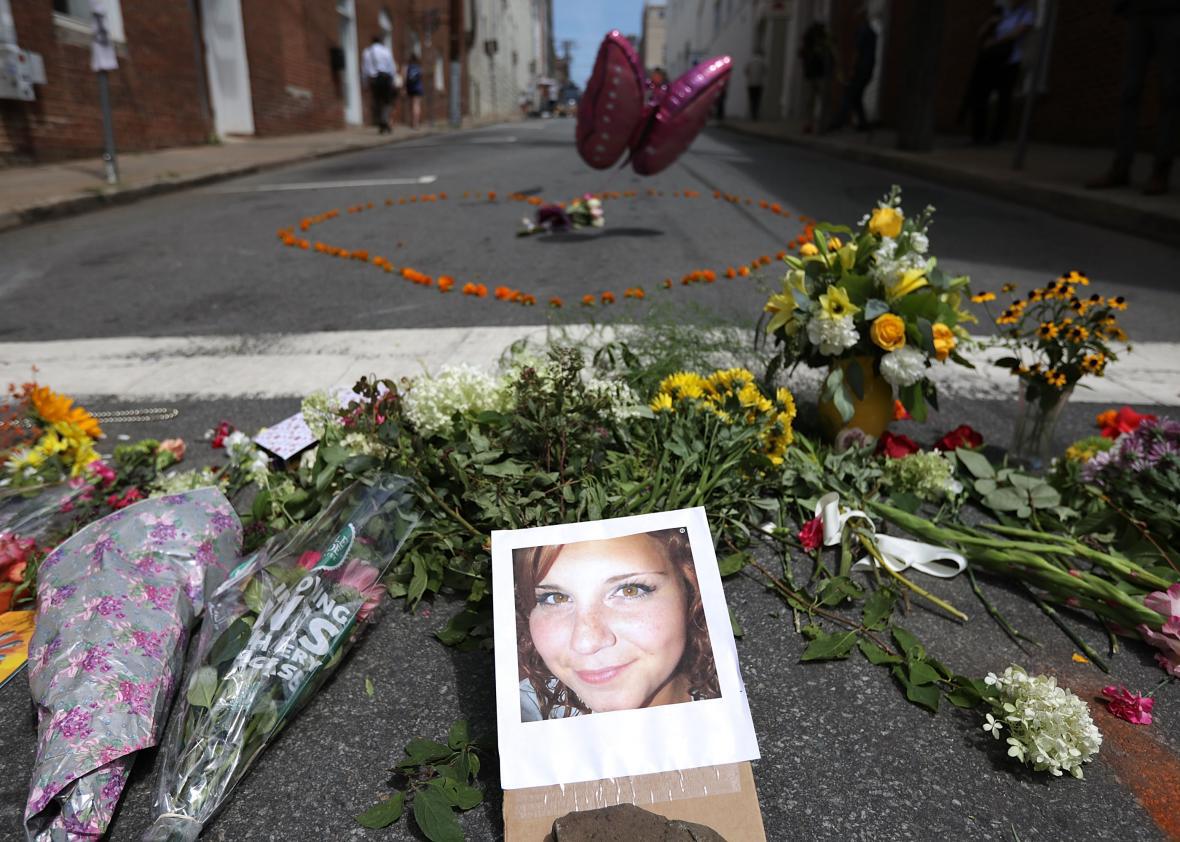When a car plowed into a crowd of counter-protesters in Charlottesville on Saturday, killing one person, there was lots of back-and-forth about whether that action could be classified as terrorism. For National Security Adviser H.R. McMaster though, there really isn’t much to debate. “Certainly I think we can confidently call it a form of terrorism,” McMaster said on NBC’s Meet the Press. “What terrorism is is the use of violence to incite terror and fear, and of course it was terrorism.”
McMaster espoused the same message on ABC’s This Week although he seemed to take a more careful stance, suggesting the killing was more a “criminal” act than terrorism. “I certainly think any time that you commit an attack against people to incite fear, it is terrorism. It meets the definition of terrorism,” he said. “What you see here, is a criminal act. A criminal act that may be motivated by this hatred and bigotry.”
By describing vehicular as at least a form of terrorism, McMaster certainly went further than President Donald Trump, who has been harshly criticized for saying that “many sides” were to blame for the violence in Charlottesville on Saturday. Even though he didn’t specifically mention it, McMaster insisted that the president intended to denounce racists when he addressed the violence.
“He condemned hatred and bigotry on all sides, and that includes white supremacists and neo-Nazis,” McMaster said on NBC. “I think it’s clear—I know it’s clear in his mind and ought to be clear to all Americans: We cannot tolerate, obviously, that bigotry, that hatred that is rooted in ignorance, ignorance of what America stands for, what America is.”
McMaster defended the president’s response as the White House also went on the defensive and issued a statement saying that Trump’s remarks on the violence in Charlottesville were meant to include the Ku Klux Klan and Neo-Nazi groups. “The president said very strongly in his statement yesterday that he condemns all forms of violence, bigotry, and hatred, and of course that includes white supremacists, KKK, neo-Nazi, and all extremist groups,” the White House said. “He called for national unity and bringing all Americans together.” The statement was attributed to a “White House spokesperson.”
The clarification came as Republicans joined Democrats in criticizing the president’s response to the violence in Charlottesville, saying that the commander in chief needed to denounce white supremacists.
“Mr. President—we must call evil by its name,” wrote Sen. Cory Gardner, a Republican from Colorado. “These were white supremacists and this was domestic terrorism.”
Sen. Orrin Hatch also said that “we should call evil by its name,” adding: “My brother didn’t give his life fighting Hitler for Nazi ideas to go unchallenged here at home.”
Sen. Marco Rubio from Florida also took to Twitter to call out the president: “Very important for the nation to hear @potus describe events in #Charlottesville for what they are, a terror attack by #whitesupremacists.”
